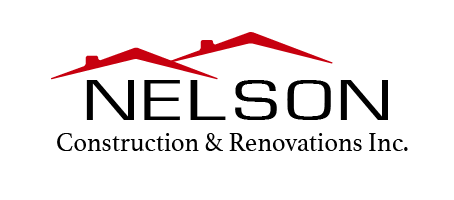It can be tricky to select the right countertop for your kitchen. You want to balance practicality, beauty and budget – but you’re probably buried in the variety of options out there. We decided to simplify things and break it down into the most common pros and cons of each material. Read on to discover the best countertops for your kitchen.
Quartz
Quartz is the most popular countertop material on the market today. It is a man-made material consisting of 90% quartz (a mineral), resins, polymers, and pigments.
Pros: It looks like stone, but it is much more durable and will withstand stains and abrasion better than other materials. It has a variety of colors and patterns available. It is not as porous as granite, so it’s easier to keep countertops free from bacteria.
Cons: It is common for edges and corners to chip, although this can be avoided if the edges are rounded. Must be professionally repaired.
Cost: Can range from $80 to $140 a square foot.
Granite
Granite is a natural stone cut from a quarry, installed, and sealed. It carries beautiful veins and and colors and other natural features.
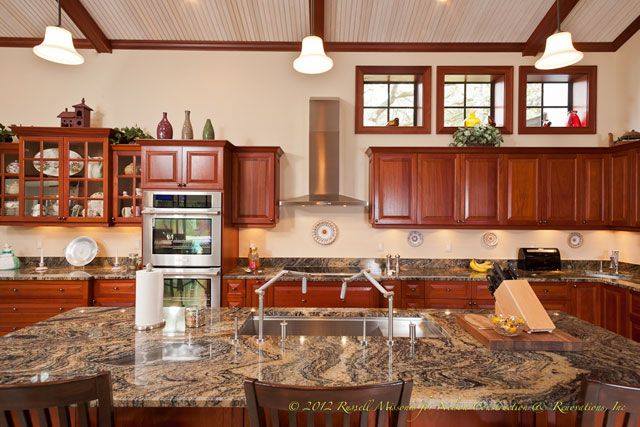
Pros: The beauty of all-natural stone. Stain-resistant when properly sealed.
Cons: Not as hard as quartz. Granite has been known to emit small amounts of radon and other radiation, although most experts say the amount emitted is harmless.
Cost: Can range from $80 to $175 per square foot.
Marble
Marble is another natural stone, however it is not as hard as granite and thus can stain more easily. You can buy honed marble (which has more of a matte finish) or polished marble (a shinier finish which wears down over time).
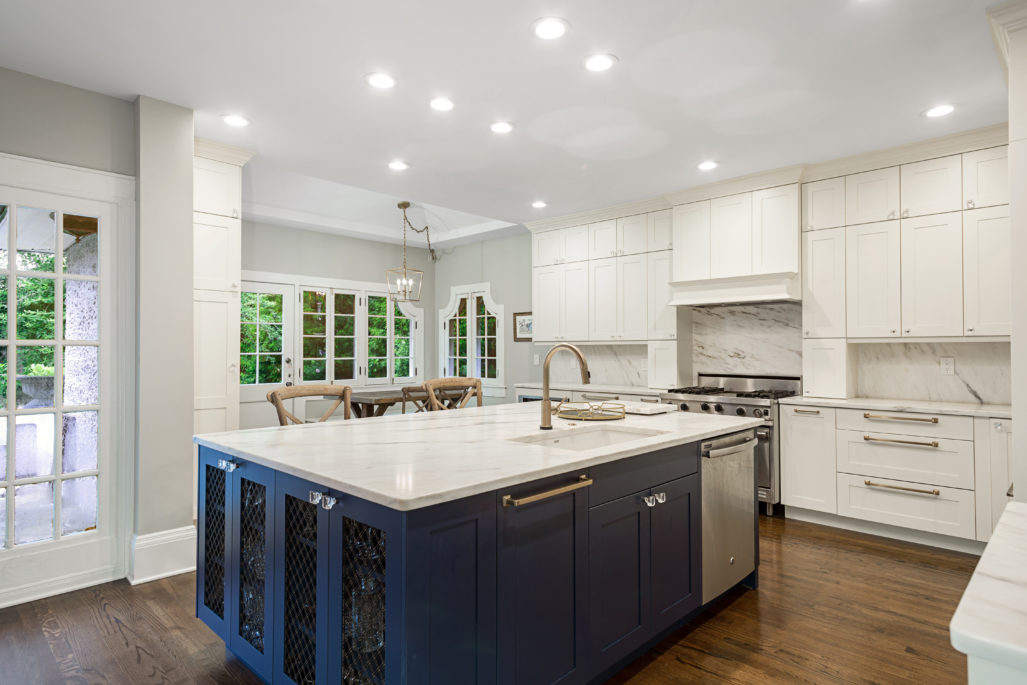
Pros: Many homeowners say this is the most beautiful stone in the kitchen, and it always seems to be trending. It can be cost-effective, depending on which kind of marble you buy (Carrara marble, which comes from the mountains of Carrera, Italy, is one of the least expensive options on the market).
Cons: Marble is high-maintenance: it is prone to staining and etching, so it requires good sealants which should be reapplied every six months.
Cost: $60 to $200 a square foot.
Wood
There is nothing quite like the natural beauty of wood, and its warmth adds a beautiful touch to the kitchen that no other material can match. (Also – it is literally warmer than stone.) The variety is endless, from butcher block to parquet, from maple and cherry to teak and bamboo. Wood countertops go well with many design styles, including traditional, modern, country farmhouse, craftsman, Mediterranean and more.
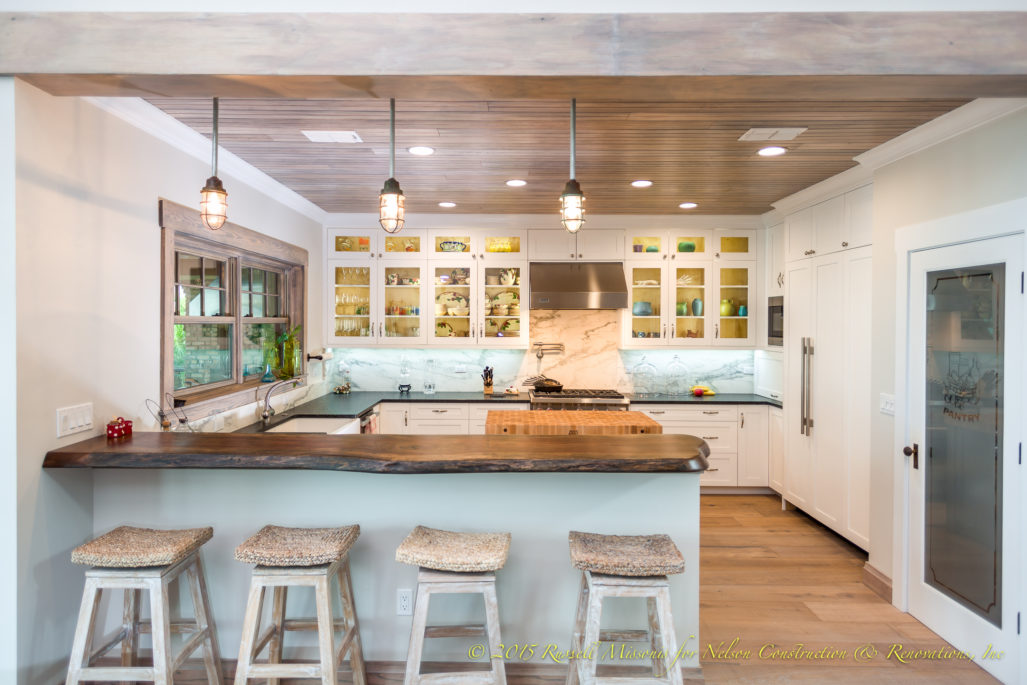
Pros: The number one reason homeowners select wood is its beautiful appearance. It also creates an excellent work space, especially if you select a section of your kitchen for cutting, because wood is easier on your knives than stone. Wood is also a “green” building material and wood countertops are usually recyclable.
Cons: It must be carefully sealed, as wood is a very porous substance that can breed bacteria. Wood countertops scratch and dent more easily, although many homeowners love this natural look. Most wood countertops have to be sanded and re-sealed after about 10 or 20 years.
Concrete
Yes, it is the same material used to make sidewalks – but in a kitchen countertop it is far, far more beautiful. Concrete is rapidly rising to center stage in the world of home design for its customizability and rustic, industrial style. There are, however, a number of pros and cons you should be aware of before you opt for concrete countertops in your kitchen.
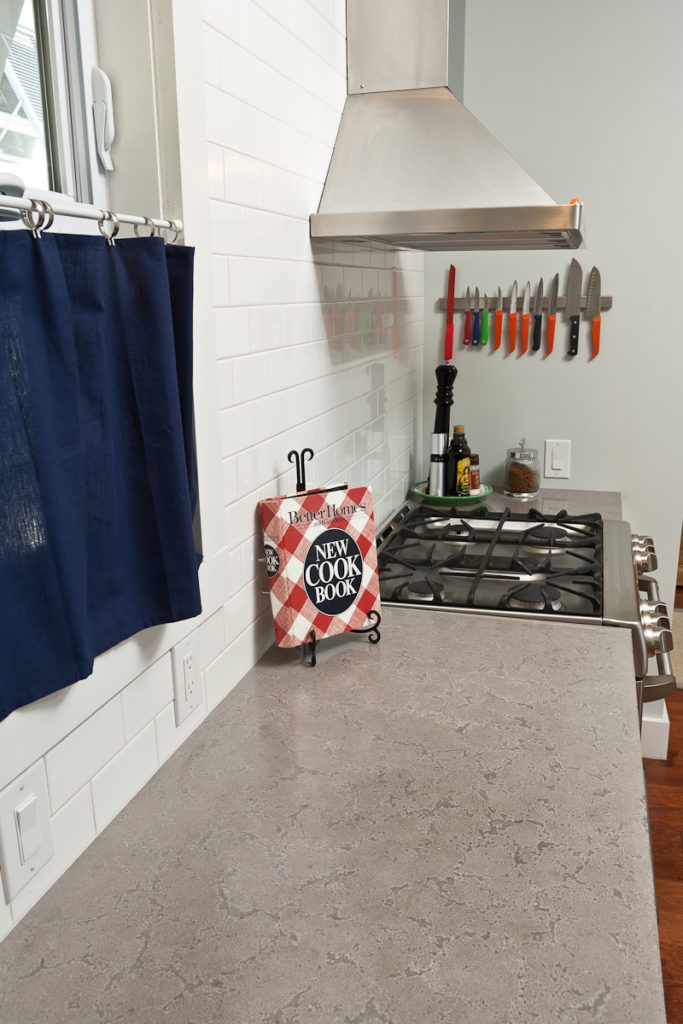
Pros: As concrete can be poured into any shape you want, it is completely customizable. An endless variety of pigments are available, and anything can be cast into concrete – including sentimental trinkets, logos, designs, etc.
Cons: They can be high-maintenance and typically have to be re-sealed every 2-3 years. You will need to apply a wax coating every month to prevent stains. They are not a “perfect” material, but that can be part of their charm – homeowners who love that rugged, industrial look will undoubtedly fall in love with this material in their kitchen. It also takes time for concrete to cure, so they will continue to change color and texture as time passes.
Average Cost: $65-$135 + per square foot.
Which Kitchen Countertop is Right For You?
When selecting the countertop for your kitchen, be sure to prioritize what is important to you. Are you creating a beautiful, showpiece kitchen? Or will it be the center of activity and have to withstand a lot of wear and tear? Are you willing to take the time to maintain it, or do you lead the kind of life that prevents you from re-sealing and repairing cracks when they come up? Do you prefer a pristine style, or do you love a natural, rugged patina? These are all questions you should ask yourself, or go over with your designer when designing your dream kitchen.
Nelson Construction and Renovations, a family business founded in 2006, is a design-build company that specializes in high-end remodels, home additions, and custom homes. With our headquarters in Clearwater, Florida, we serve homeowners all over Pinellas and Hillsborough Counties. We are an award-winning member of the National Association of the Remodeling Industry and have an A+ rating with the Better Business Bureau.
Creative Commons Attribution: Permission is granted to re-post this article in its entirety with credit to Nelson Construction and a clickable link back to this page.
